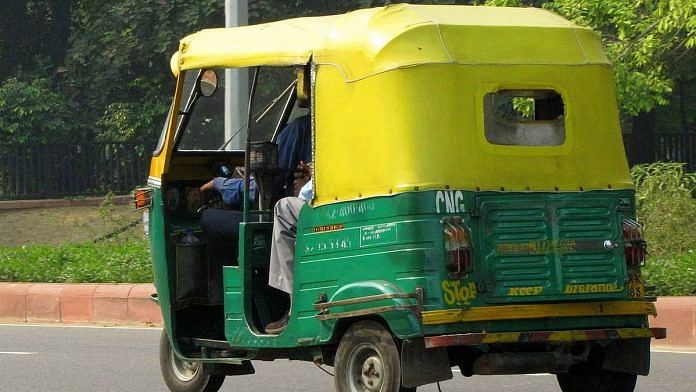Bengaluru: Karnataka and its capital Bengaluru are once again showcasing themselves as the tech-and-new-economy-friendly hubs of India, with another edition of a much-hyped investors’ summit beginning Wednesday.
But a sideshow involving Uber and local transport authorities is sticking out like a sore thumb, reminding how the state’s archaic laws are still struggling to catch up with its status of being the home to the highest number of startups and ecommerce players in the country.
Uber, the app-based mobility service provider said Tuesday that e-hailing auto rickshaw offerings in Bengaluru are “under a cloud” and that these services are likely to be limited to only a few localities in the city, if transport authorities are unable to resolve the ongoing issue of commission charges.
App-based auto rickshaw service providers are currently operating on court intervention in Bengaluru and stare at long-drawn legal battles with the state government.
“The auto-rickshaw is an indispensable part of the Indian urban commuting landscape. While Uber started out as a cab service, using four-wheelers in India, in the past few years we began offering auto services through our app. We have witnessed a thriving e-hailing auto sector take shape because of the value the service brings to drivers and riders alike. Despite these benefits, the future of the e-hail auto sector in Bengaluru is under a cloud,” Nitish Bhushan, head of central operations, Uber India & South Asia, wrote in a blog post on the aggregators site Tuesday.
Bhushan added: “Currently, Uber and other players in the city are operating under a stay order granted by the Hon’ble Karnataka High Court after the Karnataka state government announced a ban on aggregators for running autos.”
The Karnataka High Court had on 14 October stayed a ban imposed a few days earlier by the Karnataka transport department on auto rickshaw services provided by app-based aggregators. The court, however, capped the convenience or booking fee for auto rickshaws provided by these platforms at 10 per cent of the fare, excluding goods and services taxes (GST).
The Karnataka government ban followed street-hailed auto rickshaw operators claiming that online aggregators were charging more than double the regular fares, with the transport department turning a blind eye on the “excessive” rates.
ThePrint reached T.H.M. Kumar, commissioner for transport, Karnataka, over phone for comment, but received no response till the time of publication of this report.
Also read: Bommai govt hopes investors summit will restore some shine after Bengaluru’s rain & infra woes
Uber under IT/BT or transport?
While the minimum official fare for street-hailed auto rickshaws in Bengaluru is Rs 30 for a distance of two kilometres, with additional charges of Rs 15 per kilometre after that, auto drivers in the city are notorious for demanding excess fares.
App-based aggregators had on the other hand increased their base fare to Rs 60 earlier this year and then added the Rs 40 convenience fee, which takes the minimum fare to Rs 100.
This was, however, reduced to Rs 30 after the government crackdown last month, in line with government-mandated auto fares, with an additional Rs 40 convenience fee, taking the minimum fare to Rs 70.
According to industry insiders there are over 1 lakh auto rickshaws aligned to app-based platforms, offering nearly 25 lakh rides every month in Bengaluru alone.
In Karnataka, there is still confusion on whether companies like Uber and Ola should be covered under IT/BT department regulations or transport.
Startups and online companies have often sought relief from the courts, as was seen when the Basavaraj Bommai-led BJP government in Karnataka had imposed a ban on online gaming in September last year.
The Karnataka High Court, in February, struck down the ban — based on the The Karnataka Police (Amendment) Bill, 2021 — which among other changes, restricted “any act or risking money, or otherwise on the unknown result of an event including on a game of skill”, which has added to apprehensions as it proposes to include skill in what was earlier only on a game of chance.
Uber has also said that the ongoing issue over convenience charges will likely push the company into reducing the number of localities it can serve.
“Currently, our commission in Bengaluru is capped at 10% of the fare collected. This is not financially sustainable. If our costs can not be covered through commissions, we will have to find ways to offload costs that could impact the experience of drivers and riders,” wrote Bhushan.
He added: “In the face of these commission caps, we may have to make the difficult decision to limit Uber Auto to select parts of Bengaluru where the service is viable. This will hurt drivers and inconvenience riders who depend on aggregators for their commuting needs.”
(Edited by Poulomi Banerjee)
Also read: From ‘open sewer’ to ‘success story’ — how K-100 became Bengaluru’s ‘model’ stormwater drain



